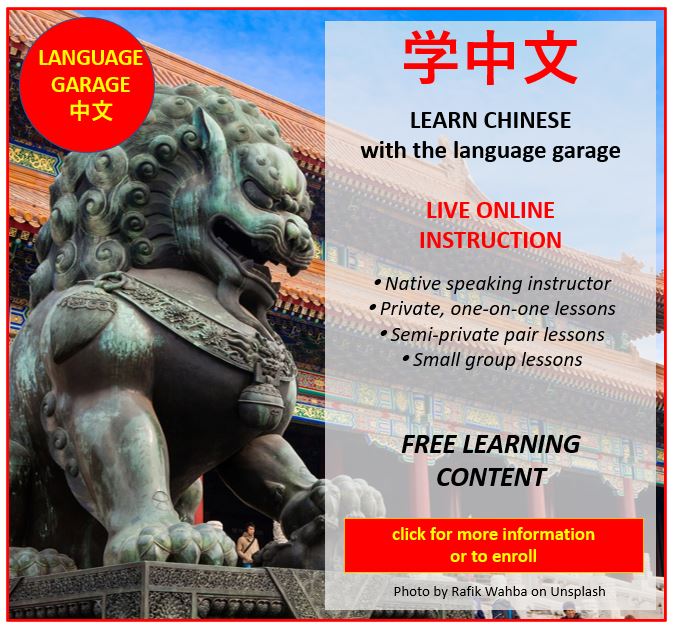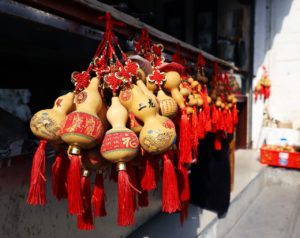Negation in Chinese with 不 bù and 没 méi
In this post we’ll learn about negation in Chinesewith不 bù and没 méi. These particles both mean not, and they’re used to say things like I’m not…, I don’t…, I didn’t… and so on. But 不 bù and没 méi are not interchangeable. Each has its own specific uses depending on tense, habit, or meaning. Let’s break it down with examples and clear rules.
Negation in Chinese with 不 bù and 没 méi: Verb Tenses
Let’s start by looking at how to use 不 bù and 没 méi to negate certain verb tenses.
Present or Future
Use 不 (bù) to negate actions that are happening now, or will happen in the future. It expresses intention, refusal, or general statements.
Structure: Subject + 不 + Verb
- 我不喝咖啡。
Wǒ bù hē kāfēi.
I’m not drinking coffee. - 他明天不来。
Tā míngtiān bù lái.
He won’t come tomorrow. - 我现在不想吃饭。
Wǒ xiànzài bù xiǎng chīfàn.
I don’t want to eat now.
Habitual
If someone never or habitually doesn’t do something, use 不 bù. Use this to describe routines, lifestyle choices, or rules.
Structure: Subject + 不 + Verb
- 我不吃肉。
Wǒ bù chī ròu.
I don’t eat meat. - 她不喝酒。
Tā bù hē jiǔ.
She doesn’t drink alcohol.
Remember: Tone Changes with 不 bù
Keep in mind that 不 bù changes tone from fourth to second when it comes before a word with the fourth tone.
- 不 是
(bù shì) is pronounced bú shì
not be - 不 在
(bù zài) is pronounced bú zài
not be located - 不 要
(bù yào) is pronounced bú yào
not want
Past
Use 没 méi or 没有 méiyǒu to negate verbs in the past.
Structure: Subject + 没 (有) + Verb
- 我没吃。
Wǒ méi chī.
I didn’t eat. - 我没吃早饭。
Wǒ méi chī zǎofàn.
I didn’t eat breakfast. - 他昨天没去上班。
Tā zuótiān méi qù shàngbān.
He didn’t go to work yesterday. - 我今天早上没有看到他。
Wǒ jīntiān zǎoshang méiyǒu kàndào tā.
I didn’t see him this morning.
In many cases, 没 méi and 没有 méiyǒu are interchangeable.
- 我没吃早饭。
Wǒ méi chī zǎofàn.
I didn’t eat breakfast. - 我没有吃早饭。
Wǒ méiyǒu chī zǎofàn.
I didn’t eat breakfast.
However, there are some differences.没 méi is more commonly used in spoken language. It’s shorter and quicker.
- 他没来上课。
Tā méi lái shàngkè.
He didn’t come to class.
没有 méiyǒu can sound more complete or formal. It can also add a sense of clarity or emphasis that something definitely didn’t happen.
- 我没有说那句话。
Wǒ méiyǒu shuō nà jù huà.
I did not say that.
Negation in Chinese with 不 bù and 没 méi: Adjectives
When negating adjectives like tall, hungry, busy, and so on, use 不 bù.
Structure: Subject + 不 + Adjective
- 他不高。
Tā bù gāo.
He is not tall. - 我不饿。
Wǒ bú è.
I’m not hungry. - 这个不贵。
Zhè ge bú guì.
This is not expensive. - 我不累。
Wǒ bù lèi.
I’m not tired.
Negation in Chinese with 不 bù and 没 méi: 有 yǒu (have)
To negate the verb 有 yǒu (have), use 没有 (méiyǒu).
Structure: Subject + 没有 + Noun
- 我有车。 我没有车。
Wǒ yǒu chē. Wǒ méiyǒu chē.
I have a car. I don’t have a car. - 我没有钱。
Wǒ méiyǒu qián.I don’t have money. - 他没有兄弟姐妹。
Tā méiyǒu xiōngdì jiěmèi.He has no siblings. - 我没有手机。
Wǒ méiyǒu shǒujī.
I don’t have a phone.
Negation in Chinese with 不 bù and 没 méi: Questions
Now let’s look at a few question patterns that use the negative particles 不 bù or 没 méi.
Negative Questions
You can ask negative questions in Chinese to seek confirmation for something you assumed, or to show surprise. Just use the appropriate negative 不 bù or没 méi and the question particle 吗 ma.
- 你不是学生吗?
Nǐ bú shì xuéshēng ma?
Aren’t you a student? - 你沒有車嗎?
Nǐ méiyǒu chē ma?
Don’t you have a car? - 你没吃饭吗?
Nǐ méi chīfàn ma?
Didn’t you eat?
Verb-not-Verb Questions
Another common pattern you can use to ask if something is or isn’t true is A 不 A / A 没 A (verb-not-verb). This is a common way to form yes–no questions.
Structure: Verb + 不/没 + Verb
or
Adjective + 不 + Adjective
- 你是不是我的朋友?
Nǐ shì bú shì wǒ de péngyou?
Are you my friend (or not)? - 他来不来?
Tā lái bù lái?
Is he coming? - 这件衣服贵不贵?
Zhè jiàn yīfu guì bú guì?
Is this piece of clothing expensive? - 她高兴不高兴?
Tā gāoxìng bù gāoxìng?
Is she happy (or not)?
Remember to use A 没 A with past sentences or sentences with the verb 有 yǒu (have).
- 你吃没吃?
Nǐ chī méi chī?
Did you eat? - 他来没来?
Tā lái méi lái?
Did he come (or not)? - 你昨天去没去?
Nǐ zuótiān qù méi qù?
Did you go yesterday (or not)? - 你有没有钱?
Nǐ yǒu méiyǒu qián?
Do you have money?
Tag Questions
You’ll also come across tag questions formed with 是不是 shì bú shì (isn’t it?) or 对 不 对 duì bu duì (right?)
- 他是你哥哥,是不是?
Tā shì nǐ gēge, shì bú shì?
He’s your older brother, isn’t he? - 他没来参加聚会,对不对?
Tā méi lái cānjiā jùhuì, duì bu duì?
He didn’t come to the party, right?
Get on the road to speaking Chinese with the Language Garage!
We hope you’ve enjoyed learning about Negation in Chinese with 不 bù and 没 méi. If you’d like to learn more:
- Follow us on Facebook, LinkedIn, BlueSky, Twitter, Threads, Mastodon, Instagram, or Pinterest. We publish lots of Chinese vocabulary, grammar, and culture notes, so it’s a great way to pick up some new vocabulary and practice.
- Check out our other posts on Chinese language, culture, and more.
- Enroll in affordable, flexible, and personalized private online Chinese lessons or sign up for a small group online Chinese class.
- Create a free Language Garage account to access tons of Chinese vocabulary, grammar, and culture.
Image by Torpong Tankamhaeng from Pixabay






